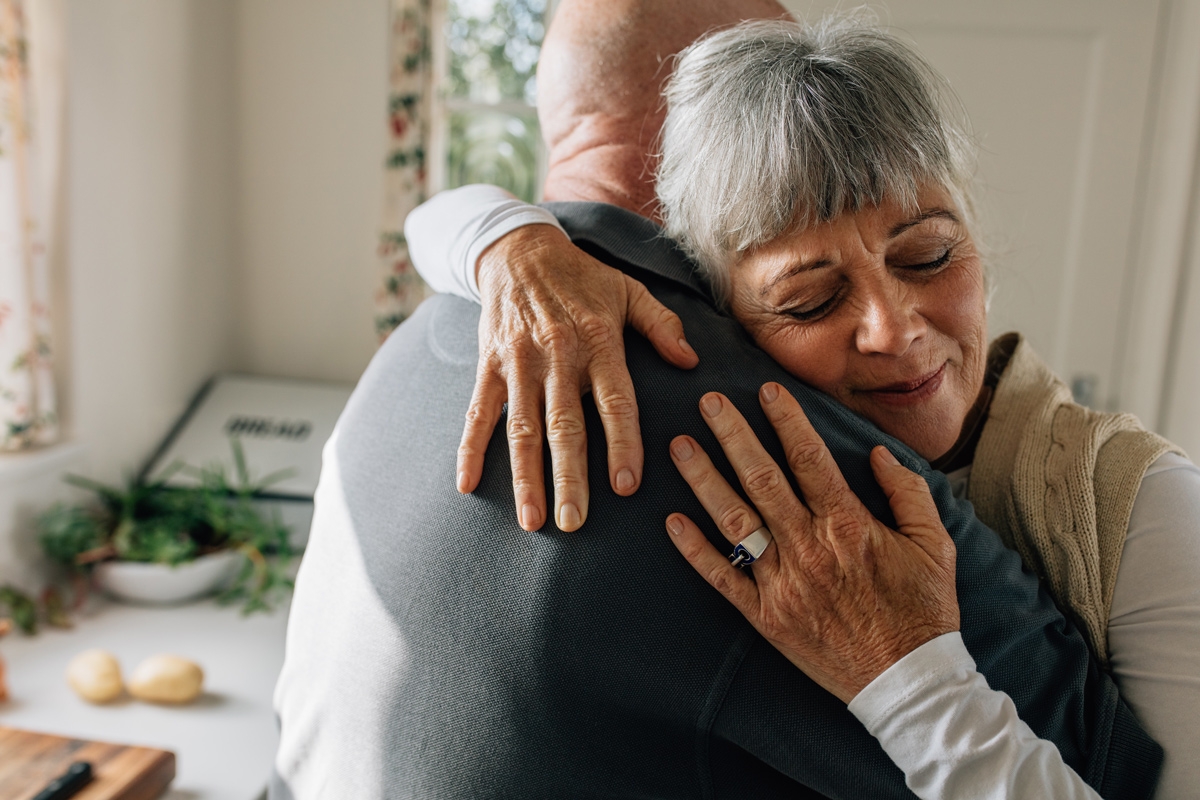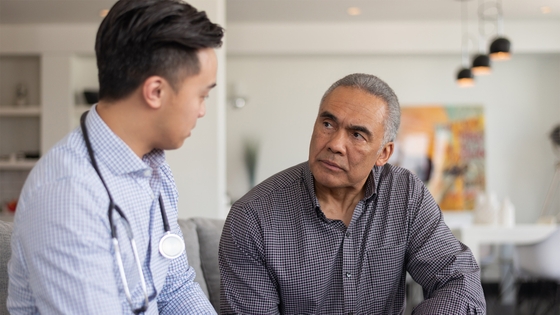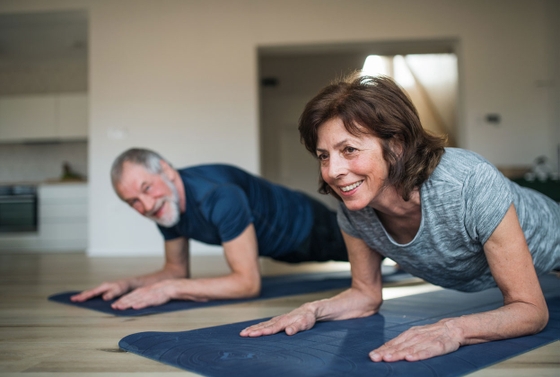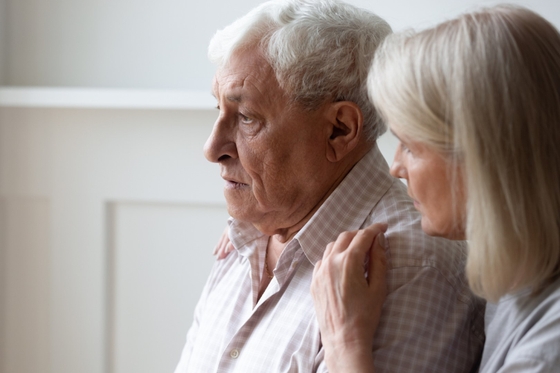
Support after a heart attack
Many different thoughts may go through your head after a heart attack and you may be presented with complicated medical info. Know where to get support.
Key takeaways
2 min read
It can feel scary and difficult to understand complicated medical information and treatments after a heart attack.
Joining a community with others who are on a similar recovery journey can help ease feelings of isolation as you receive reassurance, share experiences and learn how to lead a heart healthy life together.
Cardiac rehabilitation (cardiac rehab) is one of the best things you can do to improve your heart health and improve your recovery. Cardiac rehab programs offer individual advice, group education and supervised exercise.
There are many resources available for advice and support after a heart attack.
It’s normal to feel scared, confused and overwhelmed after a heart attack. After all, a heart attack is a life-changing event and navigating the road to recovery isn’t easy. Questions, confusion, uncertainty and even fear are common. It’s important to know you’re not alone and that there are many other people experiencing the same feelings as you.
It can be difficult to understand complicated medical information and treatments. It’s normal – even helpful – to have a lot of questions. Make sure to ask these questions to your doctor, so that you understand your treatment and recovery.
Join our MyHeart MyLife online community
The Heart Foundation’s MyHeart MyLife online community is a safe virtual space for Australian adults living with a heart condition. We also welcome caregivers, loved ones, friends and family supporting people living with a heart condition.
By joining, you can connect with others (your peers) who are on a similar recovery journey, ease feelings of isolation, receive reassurance and share experiences, and learn how to lead a heart healthy life.
The Heart Foundation also offers Supporting Young Hearts online community as a safe virtual space for younger Australians aged 18–45 years (and their support people) to share their experiences and give and receive support from others on a similar recovery journey.
Where to go for advice and support?
Your doctor will advise you on how to manage your risk. It’s important to keep your heart healthy from now on, to avoid further problems. There are many resources for further advice and support after a heart attack.
Advice and support services
NPS MedicineWise: Information about medicines, health conditions, and medical tests for health professionals and consumers.
Australia MedicAlert Foundation: A service for people with heart conditions, particularly those who are prescribed ongoing medicines. Medical ID bracelets and wristbands provide critical information in case of emergency. Phone: 1800 88 22 22
Beyond Blue: Phone: 1300 22 46 36
Diabetes Australia: Phone: 1800 177 055
Kidney Health Australia: Phone: 1800 45 43 63
Stroke Foundation: Phone: 1800 78 76 53
Carer Gateway: Phone: 1800 422 737
Accredited Practicing Dietitians
Accredited Exercise Professionals
MyHeart MyLife program: heart attack and angina
If you have recently experienced a heart attack or angina event, you can register for our free MyHeart MyLife program.
We are also working hard to introduce a new support program next year, which will deliver highly tailored information, advice and support to people living with heart disease and their carers. To be among the first to hear about it, register your interest on this page.
Cardiac Rehabilitation
Attending special rehab – called cardiac rehabilitation – is one of the best things you can do to improve your heart health.
Cardiac rehab programs offer individual advice, group education, supervised exercise and:
Advice on your treatment and managing medication/s
Information about your heart condition
Support with getting back to your usual activities
Support to change your lifestyle, for example quit smoking
Education on warning signs of a heart attack and what to do in an emergency.
Programs can be offered in different ways and places. They can even be conveniently delivered over the phone, face-to-face, in a group, online, or in hospitals, clinics and community settings.
Cardiac rehab is very beneficial. It can:
Help you recover faster to get back to everyday life
Assist you to cope with what has happened
Aid you manage your heart health better
Reduce your chances of developing further heart problems in the future.
Your doctor, nurse or health worker will advise you to attend cardiac rehabilitation and provide a referral if needed. If you haven’t been referred, ask your doctor, nurse or health worker, or contact your local cardiac rehabilitation program.
It’s a good idea to book into a program soon as possible. Find a cardiac rehabilitation program now.
You might also be interested in...

What is a heart attack?
The heart is a muscular pump that’s a little larger than your fist. It’s one of your most important muscles as it pumps blood all over your body through the circulatory system.

Physical activity after a heart attack
Discover what you need to know about being active after a heart attack.

Feelings and emotions after a heart attack
This is a guide to how you might be feeling after a heart attack.
Last updated01 April 2020